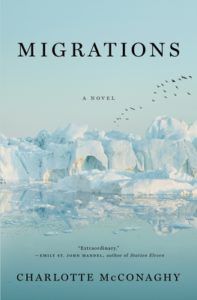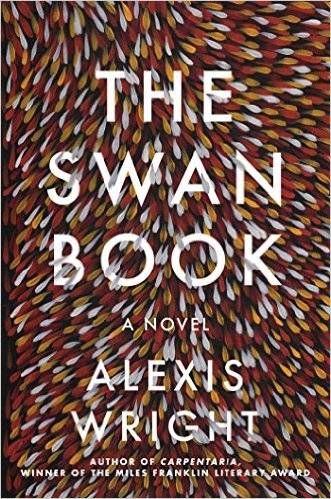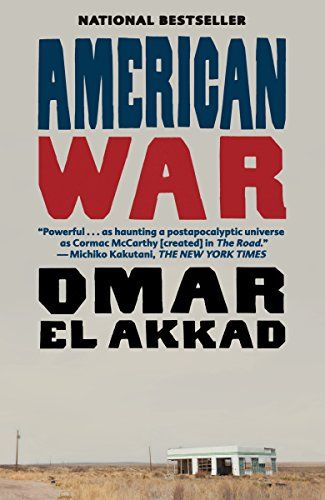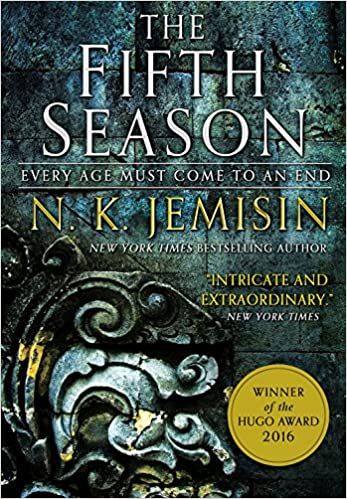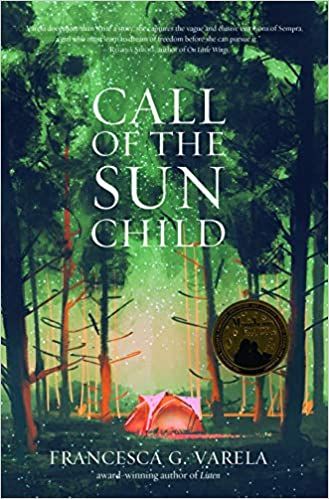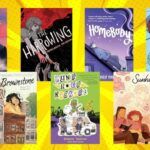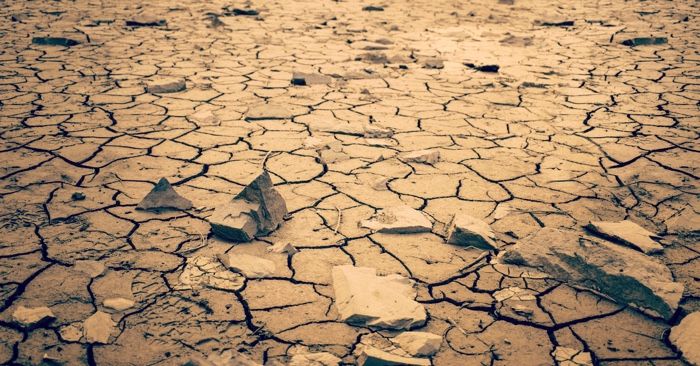
8 of the Best Novels About Environmental Disasters
I was 15 when I first saw The Day After Tomorrow on a class field trip. For those of you that haven’t seen the classic, Dennis Quaid plays a sexy climatologist who’s been largely ignored for his theories around climate change. Of course, he’s inevitably proven right and he spends most of the film trying to get to his son, a young baby Jake Gyllenhaal, while the world falls apart around him. There’s this extremely memorable scene where the aforementioned young baby Jake is desperately trying to outrun a massive tsunami that’s about to swallow New York City. You slowly see the wave build and build before it crashes down 5th Avenue, flooding the streets before crashing into the New York Public Library. It’s frightening and mesmerizing all at once. And yes, the movie might have sensationalized the climate crisis with cool visual effects and Hollywood talent, but the fact remains that glaciers are melting, sea levels are rising and temperatures are at a record high. What we see in movies and read in books is hitting just too close to home.
Now, at the rate humanity is going, the world is poised to be uninhabitable in a matter of decades. Climate activists like Greta Thunberg are devoting their lives to helping in whatever way they can, while world leaders are closing their eyes and ears in denial.
Sci-fi writers, however, have been clued in for decades, more apparent now than ever with the emergence of “cli-fi,” or climate fiction. This sub-genre includes any fiction that deals with climate change and global warming, speculative or not. The works may take place in the world close to the one we know or in a far distant dystopian future, sometimes with an added element of fantasy. The genre isn’t new—Jules Verne was writing about a quest to melt the arctic and transform Earth’s landscape in 1889—but it is more important than ever. Writers today are showing us how serious the threat is, and the apocalyptic scenarios that await us in the future if we continue to sit around.
I compiled a list of cli-fi recs, with an odd solarpunk anthology thrown in. One of my goals when compiling this list of reads was to highlight as many diverse voices as possible, as there are so many incredible BIPOC authors out there who are often overshadowed when it comes to roundups.
The Swan Book by Alexis Wright
Written by Indigenous Australian author Alexis Wright, The Swan Book depicts a future ripe with suffering, following the story of Oblivia, a mute and isolated Aboriginal girl. The story tackles the devastation and isolation she experiences as an Aboriginal girl in the far future, where the world has reached its breaking point. Floods, droughts, and blizzards have become the norm because of the devastating effects of climate change. It’s an allegorical story, with hints of magical realism along with climate fiction.
American War by Omar El Akkad
The most frightening thing about novels like American War is just how probable they seem. Investigative journalist Omar El Akkad penned this novel set in 2074. A second civil war rages between the north and south over fossil fuel while climate changes transforms America, wiping out coastal cities, the west, and the south. Not to mention, there’s a plague. You see this all through an unlikely female protagonist who makes some questionable choices just to survive. This isn’t a fantasy novel; the world here feels too close to our own. You can easily imagine tensions rising between the north and the south, imagine the damage we’ve done to the environment finally coming to a heel. This feels more like a cautionary tale than a work of fiction.
The Broken Earth Series by N.K. Jemisin
A true sci-fi feat (and winner of the coveted Hugo Award), the Broken Earth series takes place in a far future, on an Earth that’s completely unrecognizable. The change between seasons no longer means transitioning to a light jacket; seasons in this world are massive apocalyptic level events that last decades. The world that N.K. Jemisin builds is unique, unlike anything I’ve ever seen, drawing on science fiction, fantasy, and plain old science. The magical world that she builds pulls in elements of geology, with characters who draw their powers from the Earth. There are also the massive cataclysmic events that reshape the face of the Earth itself. The complexity of this trilogy, starting with The Fifth Season, is hard to capture in a neat summary—it’s better to dig in yourself.
All the Birds in the Sky by Charlie Jane Anders
It’s hard to imagine that a novel addressing climate change could be described as “charming,” but Charlie Jane Anders manages to bring some charm to a bleak future. Raging epidemics, starvation, and climate change may provide a grim backdrop but Anders uses her two central characters, Lawrence Armstead and Patricia Delfine, to bring some lightness and romance to the genre. Childhood friends who reconnect as adults, Patricia and Lawrence use all the skills at their disposal (magic for her, science for him) to try and save the world around them. It’s hard to strike a balance with humor, romance, and devastation, but Anders does it well.
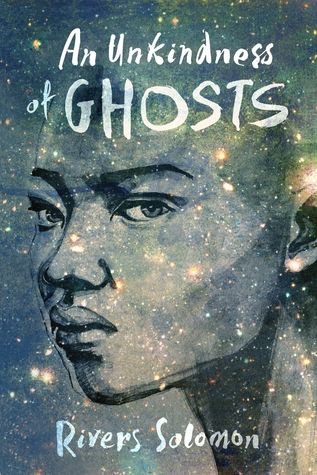
An Unkindness of Ghosts by River Solomon
The idea of humanity taking to the stars has been done countless times before. Similar to familiar stories like Snowpiercer or Battlestar Galactica, the survivors of an ecological disaster board a ship to find a new home. But like it often does, society fails to evolve along with the technology that makes space travel possible. It seems like society abroad this ship has repeated history, organized like a plantation in space, regulating darker Black and brown skin individuals to the lower decks and wealthy white folk to the very top. This story focuses on outsider and healer Aster, and her journey navigating the cruel ship and the secrets it holds.
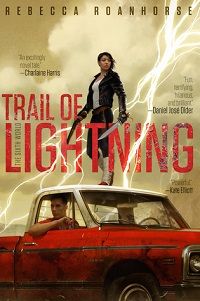
Trail of Lightning by Rebecca Roanhorse
Rebecca Roanhorse is part of a wave of new voices that are putting BIPOC characters in science fiction front and center. In her debut novel, Trail of Lightning, Roanhorse presents a world that has undergone drastic environmental change. With North America covered in water, crime and poverty are rampant. This book follows a Native American woman, Maggie, who lives in what once was known as Southwest America, isolated from the rest of the world. The end of the world reawakened the old ancient gods, bringing magic and monsters back. With a female protagonist with a knack for monster hunting and getting into trouble, parts of the story are reminiscent of Buffy the Vampire Slayer, except replace white girl with an Indigenous female lead.
Glass and Gardens: Solarpunk Summers Edited by Sarena Ulibarri
The solarpunk genre offers a slightly different take on ecological and environmental catastrophes than its darker cousins, cli-fi or eco-disaster lit. It’s a more optimistic sci-fi that imagines a world that relies on green, sustainable energy. This anthology is great for those interested in the genre, with seventeen stories that bring ecological prosperity to the forefront. That’s not to say that they don’t wrestle with the real world, they do, but in a way that focuses on progress and ingenuity. If you’re tired of reading about the inevitable apocalypse, at least these stories provide a more hopeful look at humanity’s future.
Call of the Sun Child by Francesca G. Varela
You’ll find elements of solar punk in this story about a sustainable community enclosed inside a giant dome, but it quickly becomes clear that not everything is what it seems—and that’s when the story takes a strong left turn into dystopian territory. Told for 150 years that the world outside the dome was uninhabitable because of the deadly sun. Enter one plucky teen, Sempra, dark government secrets, and savage outsides—and you have the makings of an unforgettable story.
Also In This Story Stream
- 8 Works of Hopeful Climate Fiction
- What is Ecopoetry? 5 Excellent Works to Get You Started
- 10 Environmentalist Cookbooks and Guides for a More Sustainable Kitchen
- What Aldo Leopold Taught Me About Nature
- Environmentalist Heroes: 5 Biographies and Memoirs
- 10 Picture Books for the Budding Environmentalist
- 8 Manga With Environmental Themes
- 10 Works of Environmental Literature From Around the World
- Scared About the Environment? Read These 10 Eco Horror Novels



